 | Nolvadex Active Ingredient: Tamoxifen Nolvadex is used for treating breast cancer that has spread to other sites in the body. Other names for this medication: Adifen, Adopan, Bagotam, Bilem, Bioxifeno, Citofen, Crisafeno, Doctamoxifene, Ebefen, Emalook, Femoxtal, Fenobest, Ginarsan, Gynatam, Mamofen, Neophedan, Nolgen, Nomafen, Norxifen, Novofen, Oncotamox, Panleef, Phenolurn, Puretam, Respol, Rolap, Tamec, Tamifen, Tamizam, Tamokadin, Tamona, Tamoneprin, Tamophar, Tamosin, Tamoxen, Tamoxene, Tamoxi, Tamoxifène, Tamoxin, Tamoxis, Tamoxistad, Tamsulon, Tasuomin, Taxfeno, Tecnotax, Trimetrox, Yacesal, Zymoplex Show all |
INDICATIONS
Nolvadex is used for treating breast cancer that has spread to other sites in the body. It is also used along with other medicines to treat other types of breast cancer. It is used in women who are at high risk for breast cancer and in women with DCIS (after surgery and radiation) to decrease the risk of developing breast cancer. Nolvadex is an antiestrogen. It works by blocking the effect of estrogen on certain tumors. This may prevent the growth of tumors that are activated by estrogen.
INSTRUCTIONS
Use Nolvadex as directed by your doctor.
- Nolvadex may be taken by mouth with or without food.
- Take Nolvadex with water or another nonalcoholic liquid.
- Swallow this medication whole. Do not break, crush, or chew before swallowing.
- Continue to take Nolvadex even if you feel well. Do not miss any dose. Taking Nolvadex at the same time each day will help you to remember to take it.
- If you miss a dose of Nolvadex, take it as soon as possible. If it is almost time for your next dose, skip the missed dose and go back to your regular dosing schedule. Do not take 2 doses at once.
Ask your health care provider any questions you may have about how to use Nolvadex.
STORAGE
Store Nolvadex between 68 and 77 degrees F (20 and 25 degrees C) in a tightly closed, light-resistant container. Store away from moisture, heat, and light. Do not store in the bathroom. Do not take tablets after the expiration date printed on the label. Keep Nolvadex out of the reach of children and away from pets.
MORE INFO:Active Ingredient: Tamoxifen.
Do NOT use Nolvadex if:
- you are allergic to any ingredient in Nolvadex
- you are using Nolvadex to reduce your risk of breast cancer and you have a history of blood clots in the lung or leg
- you are using Nolvadex to reduce your risk of breast cancer and you also take certain anticoagulants (eg, warfarin)
- you are taking anastrozole.
Contact your doctor or health care provider right away if any of these apply to you.
Some medical conditions may interact with Nolvadex. Tell your doctor or pharmacist if you have any medical conditions, especially if any of the following apply to you:
- if you are pregnant, planning to become pregnant, or are breast-feeding
- if you are taking any prescription or nonprescription medicine, herbal preparation, or dietary supplement
- if you have allergies to medicines, foods, or other substances
- if you have a history of blood clots in the legs or lungs
- if you have high levels of calcium in your blood, a weakened immune system, or low levels of white blood cells or platelets in your blood
- if you have high cholesterol or lipid levels
- if you have cataracts or other vision problems
- if you are using cytotoxic cancer medicines
- if you are confined to a bed or chair.
Some medicines may interact with Nolvadex. Tell your health care provider if you are taking any other medicines, especially any of the following:
- Anticoagulants (eg, warfarin) because the risk of bleeding may be increased
- Cytotoxic cancer medicines (eg, cisplatin) because the risk of developing blood clots may be increased
- Rifampin because it may decrease Nolvadex's effectiveness
- Fluorouracil or mitomycin C because they may increase the risk of Nolvadex's side effects
- Aromatase inhibitors (eg, anastrozole, letrozole) because their effectiveness may be decreased by Nolvadex.
This may not be a complete list of all interactions that may occur. Ask your health care provider if Nolvadex may interact with other medicines that you take. Check with your health care provider before you start, stop, or change the dose of any medicine.
Important safety information:
- Nolvadex may cause dizziness. These effects may be worse if you take it with alcohol or certain medicines. Use Nolvadex with caution. Do not drive or perform other possible unsafe tasks until you know how you react to it.
- Nolvadex may reduce the number of clot-forming cells (platelets) in your blood. Avoid activities that may cause bruising or injury. Tell your doctor if you have unusual bruising or bleeding. Tell your doctor if you have dark, tarry, or bloody stools.
- Nolvadex may lower the ability of your body to fight infection. Avoid contact with people who have colds or infections. Tell your doctor if you notice signs of infection like fever, sore throat, rash, or chills.
- New tumors have occurred in body sites other than the uterus in patients taking Nolvadex. It is unknown if Nolvadex may be the cause. Discuss any questions or concerns with your doctor.
- Women who take Nolvadex to reduce the risk of breast cancer should have a breast exam, mammogram, and gynecological exam before starting and during treatment with Nolvadex.
- Women who may become pregnant should begin taking Nolvadex during a menstrual period. Women who have irregular menstrual periods should have a pregnancy test immediately before starting Nolvadex. Talk to your doctor if you have any questions about how to begin taking Nolvadex.
- Women who may become pregnant must use effective nonhormonal birth control (eg, condoms, diaphragm) during sexual intercourse while they are taking Nolvadex and for 2 months after they stop taking it. Do not use hormonal birth control (eg, birth control pills); it may not work as well while you are taking Nolvadex. Discuss any questions about effective nonhormonal birth control with your doctor.
- Nolvadex will not prevent you from becoming pregnant.
- Lab tests, including breast exams, mammograms, gynecologic exams, complete blood counts, and liver function tests, may be performed while you use Nolvadex. These tests may be used to monitor your condition or check for side effects. Be sure to keep all doctor and lab appointments.
- Nolvadex should be used with extreme caution in children; safety and effectiveness in children have not been confirmed.
- Pregnancy and breast-feeding: Nolvadex may cause harm to the fetus. Do not become pregnant while you are using it and for 2 months after you stop using it. If you think you may be pregnant, contact your doctor. You will need to discuss the benefits and risks of using Nolvadex while you are pregnant. It is not known if Nolvadex is found in breast milk. Do not breastfeed while taking Nolvadex.
All medicines may cause side effects, but many people have no, or minor, side effects.
Check with your doctor if any of these most common side effects persist or become bothersome:
Bone pain; constipation; coughing; hot flashes; muscle pain; nausea; tiredness; vaginal discharge; weight loss.
Seek medical attention right away if any of these severe side effects occur:Severe allergic reactions (rash; hives; itching; difficulty breathing; tightness in the chest; swelling of the mouth, face, lips, or tongue; unexplained hoarseness); abnormal menstrual periods; abnormal vaginal bleeding or bloody discharge; chest pain; coughing up blood; dark urine; decreased sexual desire or ability; depression; fever, chills, or persistent sore throat; groin or pelvic pain or pressure; loss of appetite; loss of balance or coordination; missed menstrual period; new or increased breast tumor or pain; new or unusual lumps; one-sided weakness; pain or swelling in one or both legs; red, swollen, blistered, or peeling skin; severe or persistent tiredness or weakness; shortness of breath; skin changes; stomach pain; sudden severe headache; swelling of the arms or the legs; unusual bleeding or bruising; vision or speech problems; yellowing of the eyes or skin.
This is not a complete list of all side effects that may occur. If you have questions about side effects, contact your health care provider.
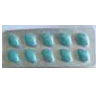 Extra Super ViagraExtra Super Viagra is used in the treatment of Erectile Dysfunction with Premature Ejaculation. Extra Super Viagra contains Sildenafil100 mg and Dapoxetine 100 mg.as low as $3.2
Extra Super ViagraExtra Super Viagra is used in the treatment of Erectile Dysfunction with Premature Ejaculation. Extra Super Viagra contains Sildenafil100 mg and Dapoxetine 100 mg.as low as $3.2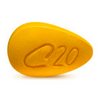 Brand CialisBrand Cialis is a medication used for treating men's erectile dysfunction (ED) and developed by the pharmaceutical company LILLY. Cialis works faster than other ED drugs and lasts for an extended period of time.as low as $3.61
Brand CialisBrand Cialis is a medication used for treating men's erectile dysfunction (ED) and developed by the pharmaceutical company LILLY. Cialis works faster than other ED drugs and lasts for an extended period of time.as low as $3.61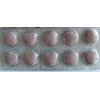 Extra Super LevitraExtra Super Levitra is used in the treatment of Erectile Dysfunction with Premature Ejaculation.Extra Super Levitra 100 mg contains Vardenafil 40 mg and Dapoxetine 60 mg.as low as $3.36
Extra Super LevitraExtra Super Levitra is used in the treatment of Erectile Dysfunction with Premature Ejaculation.Extra Super Levitra 100 mg contains Vardenafil 40 mg and Dapoxetine 60 mg.as low as $3.36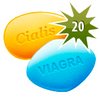 Trial Erection packs 1Viagra 10 pills x 100 mg,
Trial Erection packs 1Viagra 10 pills x 100 mg,Cialis 10 pills x 20 mg.as low as $3
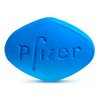 Brand ViagraBrand Viagra is an oral medication for erectile dysfunction (ED) developed by the pharmaceutical company PFIZER. It helps most men with ED improve their erections. as low as $1.41
Brand ViagraBrand Viagra is an oral medication for erectile dysfunction (ED) developed by the pharmaceutical company PFIZER. It helps most men with ED improve their erections. as low as $1.41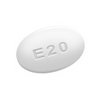 Cialis SoftCialis Soft Tabs are indicated for the treatment of erectile dysfunction. The soft formulation allows for the medicine to enter your bloodstream much faster compared to regular Cialis pills that need to be digested.as low as $1.31
Cialis SoftCialis Soft Tabs are indicated for the treatment of erectile dysfunction. The soft formulation allows for the medicine to enter your bloodstream much faster compared to regular Cialis pills that need to be digested.as low as $1.31